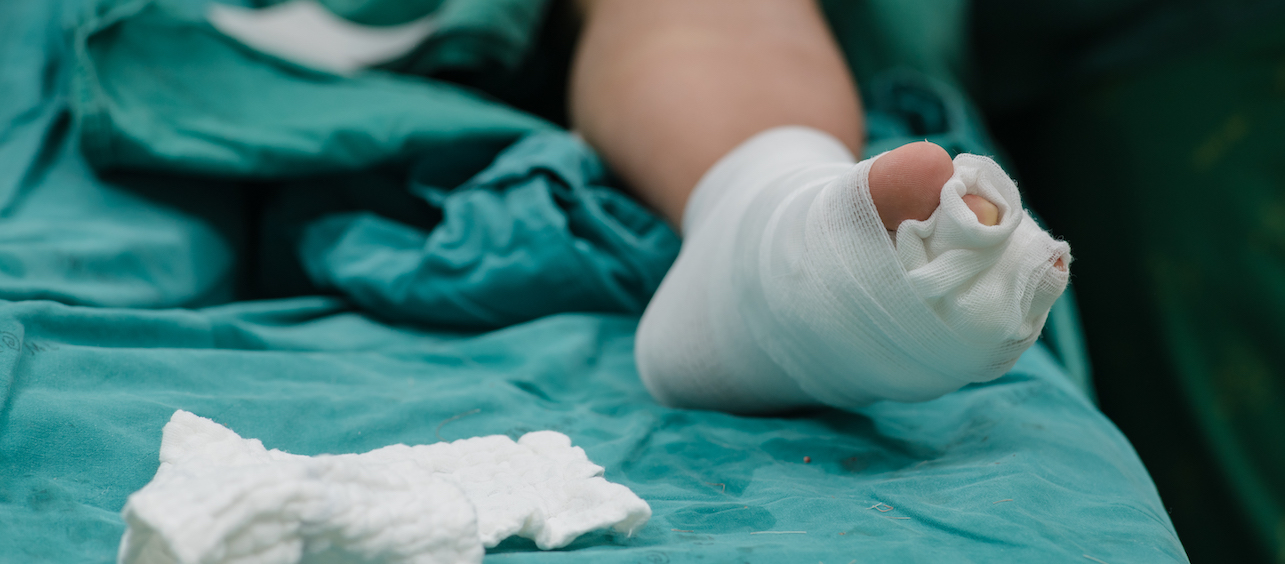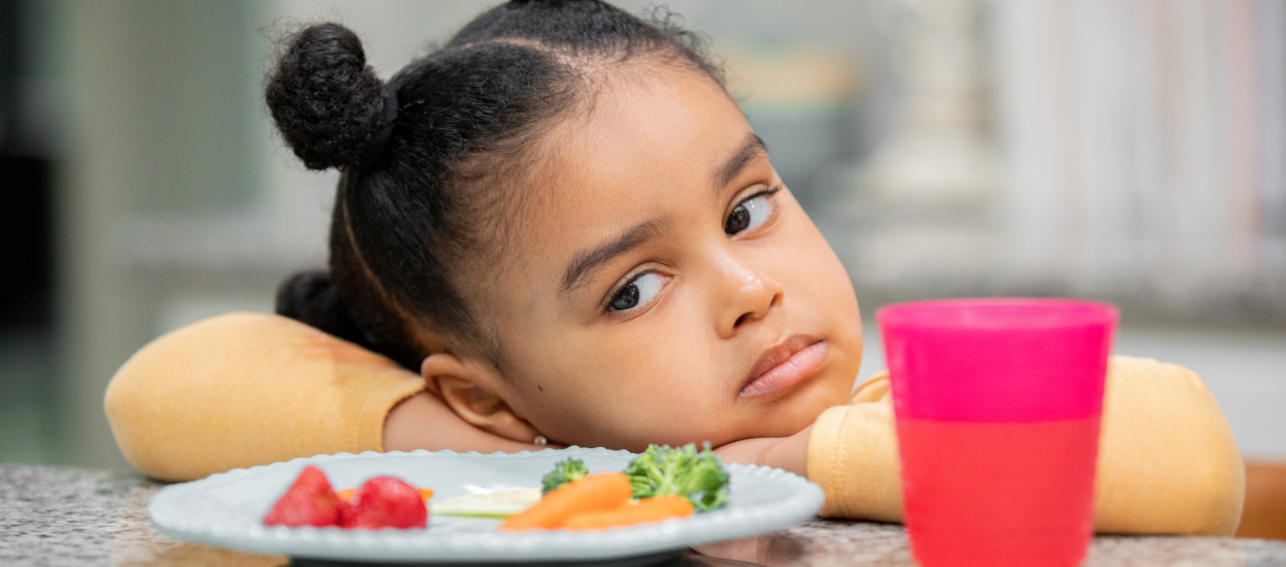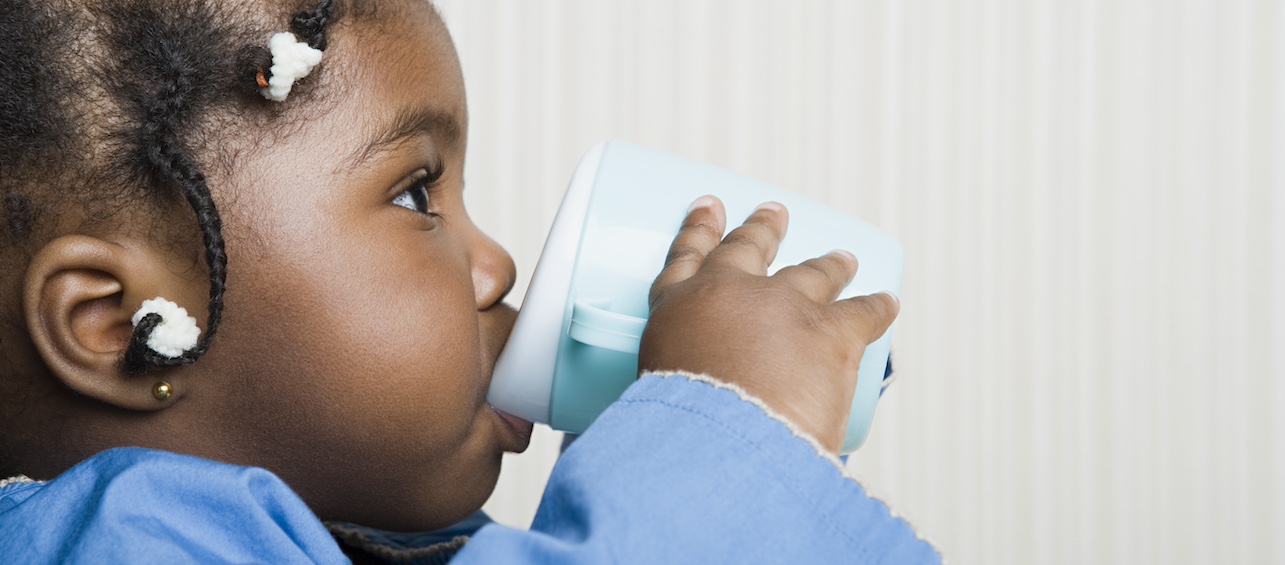When your child is healing from a significant wound — whether it’s due to trauma or after a surgery — parents naturally have many concerns. These concerns typically center around how the wound is healing and if infection might set in. You may focus on the bandaging, how clean the wound is, and what was used to close the wound, such as stitches, glue or staples.
Something else you should think about is NUTRITION.
The benefits of good nutrition during wound healing
You’ll want to make sure nutrition is being discussed among the care team and is modified appropriately when your child has a major wound that is healing. This is because when a wound is healing, good nutrition has many benefits, among them:
- Faster healing
- Lower risk of infection
- In some cases, a shorter hospital stay
While a proper diet is important for all around good health and is helpful in even minor wound healing, it’s especially important to pay attention to in the following situations:
- Surgical incisions
- Open wounds
- Pressure ulcers
- Graft versus host disease (GVHD)
- Burns
We also pay particular attention to nutrition in our patients who have had surgery (either major or minor), patients who are not as mobile (and at risk of pressure ulcers), those who are immunosuppressed, and those who are low weight or at risk for malnutrition (for example, due to underlying illnesses or interventions).
Wound care protocol at Cincinnati Children’s
Members of the Advanced Nutrition Program (part of the Division of Gastroenterology, Hepatology and Nutrition) have worked in collaboration with our colleagues in Nutrition Therapy (registered dietitians) to improve how we address nutrition and wound healing in a uniform way across the hospital. We’ve always had wound consultations available to our patients to provide practical care of the wounds. Now we’re developing a nutritional pathway to make sure the right nutritional support is offered to every patient who needs it.
Our goal is to make this process consistent throughout the hospital. With more than 75 dietitians on staff, having this new protocol in place will ensure that the same nutrition approach to wound healing is offered to every patient. The protocol includes specific steps for nutrition assessment and appropriate follow-up care for every patient.
The risks of poor nutrition
Some of the most important factors to consider in relation to wound healing are the consequences of poor nutrition. In these children, we see a variety of negative outcomes during wound healing that directly relate to nutrition. These include:
- Longer time for the wound to heal
- Wound dehiscence, where a wound starts to heal but comes apart again
- Super infection of the wound
- Impact on pain and quality of life
What you can do
Now that you see how big of an impact nutrition can have on wound healing, what can you do about it? If your child has an upcoming surgery or has a major wound that is healing, here’s how you can make sure nutrition is part of the conversation:
- If you’re in the hospital, ask about your child’s nutrition. At Cincinnati Children’s, parents can request a wound or a nutrition consultation at any time. We have nutrition specialists and dietitians available to discuss your concerns and help create a plan to address them. Diet recommendations will vary depending on your child’s nutritional status and the type of wound they have.
- Think about nutrition before surgery. Nutrition consultations are also available when preparing for an operation, whether it’s next week or six months from now. Depending on their nutritional status and needs, patients can be seen in dedicated dietitian clinics or in the Advanced Nutrition clinics offered by the Division of Gastroenterology, Hepatology and Nutrition. Nutritional status going into surgery is a good predictor of how well surgical wounds will heal and our goal is to help you optimize that in advance.
Our colleagues in Nutrition Therapy and our Advanced Nutrition Team all appreciate how important nutrition is to wound healing, and are always available for a consult. Please don’t hesitate to request our services if your child is recovering from a wound or if you have an upcoming surgery planned.
Editor’s Note: Theresa Mayes, RD, CSP, LD, CCRC, co-authored this blog post. She is a registered dietitian in the Division of Nutrition Therapy at Cincinnati Children’s.






